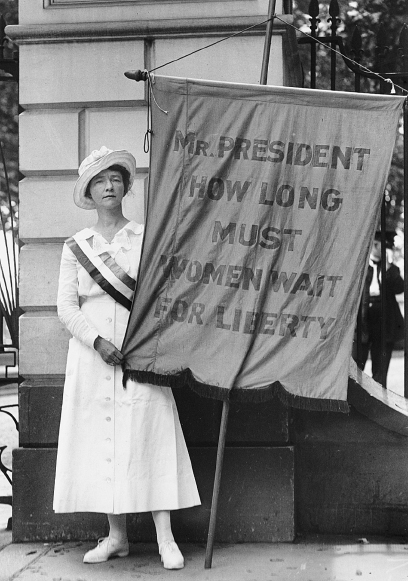What impact did the war have on the home front?
Printed Page 656

MANY PROGRESSIVES HOPED that the war would improve the quality of American life as well as free Europe from tyranny and militarism. Mobilization helped propel the crusades for woman suffrage and prohibition to success. Progressives enthusiastically channeled industrial and agricultural production into the vast war effort. Labor shortages caused by workers entering the military provided new opportunities for women in the booming wartime economy. With labor at a premium, unionized workers gained higher pay and shorter hours. To instill loyalty in Americans whose ancestry was rooted in the belligerent nations, President Wilson launched a campaign to foster patriotism. But fanning patriotism led to suppressing dissent. When the government launched a harsh assault on civil liberties, mobs gained license to attack those whom they considered disloyal. As Wilson feared, democracy took a beating at home when the nation undertook its crusade for democracy abroad.
CHRONOLOGY
1916
- – Republican and Progressive parties endorse woman suffrage.
1917
- – Committee on Public Information is created.
- – Espionage Act and Trading with the Enemy Act.
1918
- – President Wilson endorses woman suffrage.
- – Sedition Act.
- – Republicans win a majority in both houses of Congress.
1920
- – Prohibition begins.
- – American women get the vote.